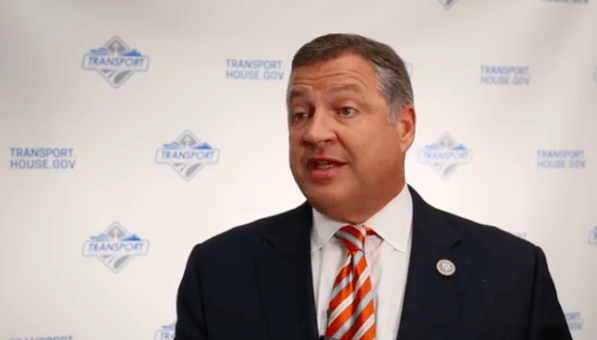Taking a cue from Donald Trump, the leader of the House Transportation and Infrastructure Committee is making a push for an infrastructure spending spree, even though the current federal transportation funding law doesn't expire for several years.
Last week committee chair Bill Shuster, a Pennsylvania Republican, kicked off a campaign called "Building a 21st Century Infrastructure" with a hearing featuring testimony from freight shippers, carmakers, equipment manufacturers, and other interests that reap rewards from more road spending.
The campaign is still in the hype phase. We know that the highway building industry is excited, but no specific policy proposal has been announced. So far what Shuster's committee has released is a list of vague "principles":
- Make smart investments, consistent with the fundamental federal role, to ensure a modern, efficient U.S. transportation infrastructure.
- Leverage resources from all levels of government and the private sector.
- Recognize, promote, and develop integrated transportation systems.
- Empower state and local governments.
- Encourage technological solutions and promote innovation.
- Reduce regulatory burdens on U.S. businesses.
- Streamline and cut federal government red tape to expedite transportation projects.
These principles are laced with code phrases. In conservative orthodoxy, for instance, "the fundamental federal role" does not include spending on transit. Meanwhile, "empowering state and local governments" implies weakening federal oversight of highway-centric state DOTs -- an area where U.S. DOT made progress during the Obama administration.
The document does contain one explicit reference to "inadequate" "public transit and rail transportation," but otherwise the language is standard boilerplate that refers to accelerated highway construction. With Senate Democrats talking about making common cause with the White House on infrastructure spending, advocates will have to guard against a new road-building binge.
More recommended reading today: Urban Milwaukee teases out trends in rural economies that might have helped elect Trump in Wisconsin. And the Political Environment reports that Wisconsin Governor Scott Walker, facing fiscal pressures, has scaled back an unpopular highway widening in Milwaukee.






